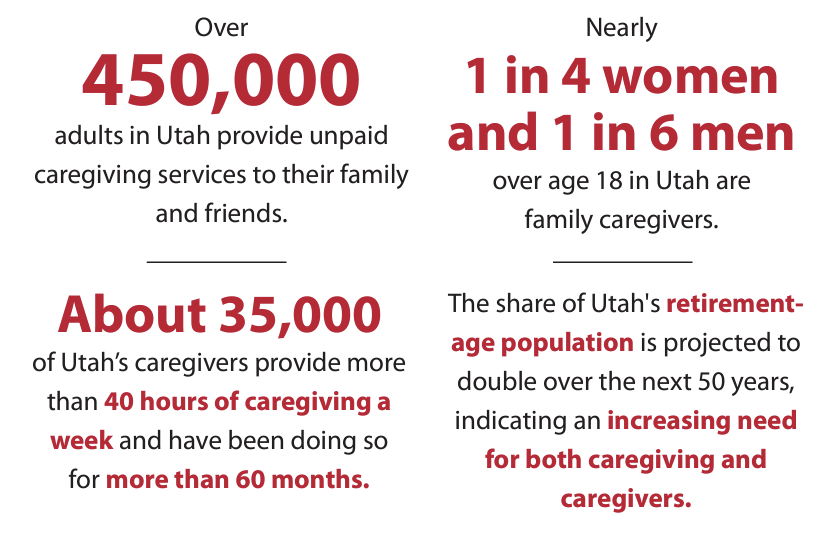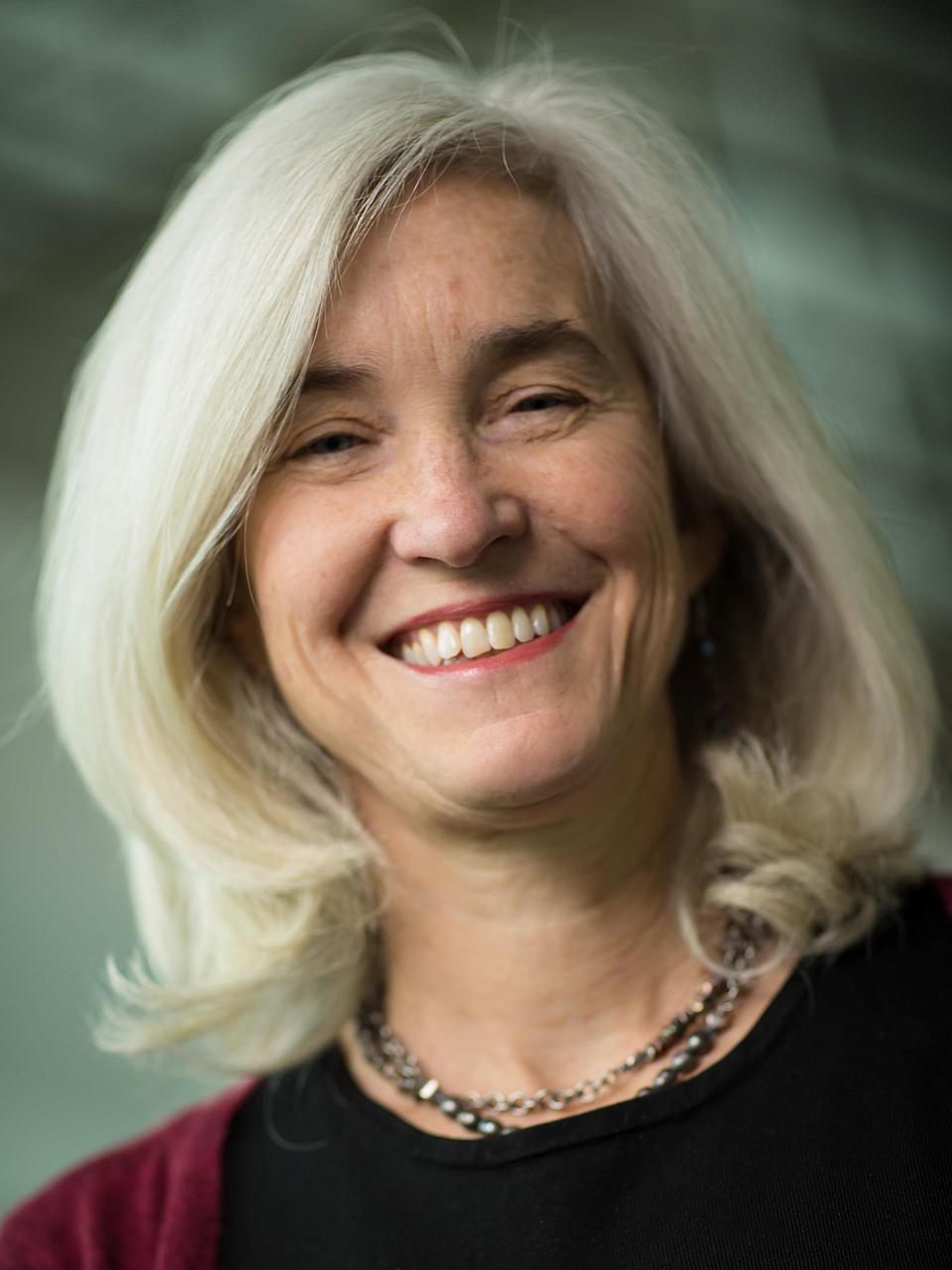Voices of U of U Health
Family Caregiver Month in Utah Spotlights Unsung Heroes
Hundreds of thousands of Utahns play an important role in our health care system. And these family caregivers are often overlooked.
Family caregivers. They provide care to someone with a disability or physical or mental health condition. That care may be temporary or long-term. It may include help in everyday tasks as well as medical care.
Now, the contributions and sacrifices of family caregivers are being recognized at the state level. Gov. Spencer Cox declared November 2023 as Family Caregiver Month in Utah.
It’s a move that spotlights the importance of family caregivers. It also recognizes the difficulties they face in their caregiving role.
The Family Caregiving Collaborative at the University of Utah College of Nursing is leading the effort to honor and support family caregivers in Utah.
Family Caregivers Come from All Walks of Life
More than 400,000 Utah adults are family caregivers. Utah's aging population means that number is expected to grow by 30%, or to more than 500,000, by 2030.
Almost two-thirds of family caregivers are women. Many tend to aging parents. Others care for disabled children or partners or spouses who are ill or injured. Some look after patients who aren't relatives, tending to friends or community members.
Caregiving can be a joyful act of service. But it also takes its toll on the caregiver.

Many experience financial effects. They can face lost job opportunities or lower pay because they left the workforce to care for loved ones. Their unpaid work is worth $5.1 billion a year in Utah (2022).
Caregivers also face spiritual, emotional, and physical health effects. This includes higher rates of depression than the general population. Every domain of a family caregiver’s life is impacted by the choice to care for another person.
Supporting caregivers with these challenges is where the Family Caregiving Collaborative comes in.
Helping the Helpers
The collaborative looks at the impact of caregiving on caregivers—and finds new ways to support their needs.
I’ve seen this issue from both sides. Like most people, I have been, and presently am, a caregiver for my family.
I'm also a faculty member in the College of Nursing. In that role, I see that nurses are often the ones who talk to families about care needs. It seems natural for the college to lead the movement at the University of Utah for family-centered care.
The Family Caregiving Collaborative does this work to support family caregivers through many methods, including:
- Educating future health care professionals to identify, assess, and support caregivers.
- Providing evidence and new models of care that engage family caregivers as a member of the health care team.
- Partnering with our community for family caregiver advocacy.

A Nationwide Effort to Help Caregivers
The Family Caregiving Collaborative is part of a nationwide effort to support family caregivers. Representatives from the collaborative recently took part in the Caregiver Nation Summit.
At the Washington, D.C., summit, we met with representatives and colleagues from other states. Together, we’re working to raise awareness of the National Strategy to Support Family Caregivers.
The national strategy makes recommendations to support caregivers. Those range from awareness and research to services and financial and workplace security.
The collaborative is working on educational programs for health care professionals. There’s no aspect of health care that can’t engage with family caregivers. Everyone can play a part, from nursing to medicine to pharmacy.
Support can start with better communication between families and medical staff. Health facilities can also have staff dedicated to family caregiver engagement. They can also include families in the health care process sooner.
The collaborative is also working with partners to create a state plan to support family caregivers. That support can take many forms, from assistance programs to financial aid.
Utah Can and Should Lead the Way on Caregivers
Family caregivers support and care for so many Utahns. The medical community must take steps to care and support them. This state declaration is just the latest step in our progress on this issue.
We’re working hard to make sure family caregivers get the support they need. Utah needs to be a leader in this.
Utah is touted a family state. One way to prove that is to become a national leader in tending to our family caregivers.
The Family Caregiving Collaborative holds events for caregivers and clinicians throughout the year. More information available on our website.
